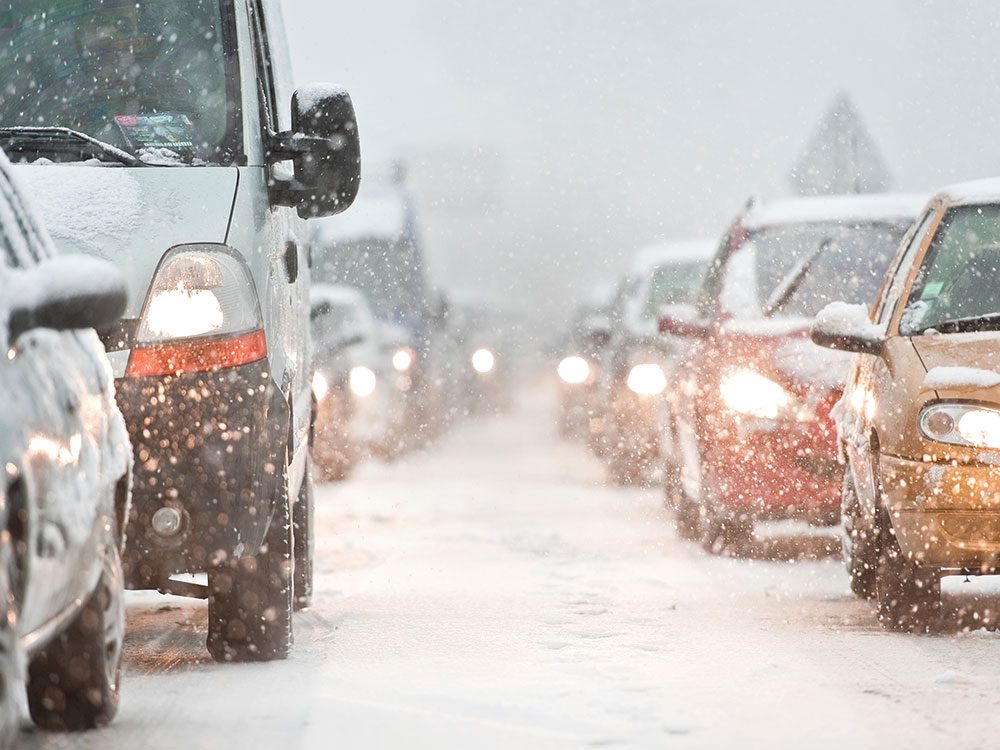
Pack a winter road trip emergency kit
When it comes to winter road trip essentials, there are certain things that you just shouldn’t leave home without. Your vehicle’s emergency kit should include a snow brush and ice scraper to clear off your car in the event of snowfall, a set of jumper cables for your battery, a backup cell phone charger as well as snacks and a blanket in the unlikely event of a breakdown. While we hope you won’t need any of these supplies on your winter road trip, it’s always better to be safe than sorry!

Get a good night’s sleep before a winter road trip
While being well-rested before a long drive is important year-round, it’s especially true when you’re setting out on a winter road trip. Road conditions can change quickly this time of year, and snow and ice often require drivers to manoeuvre or change their driving quickly. Alertness, therefore, is key, and might mean factoring in a few extra hours of sleep prior to departure. (These tips for getting a good night’s sleep can help.) You should also consider refraining from nighttime driving, if possible, as low light further decreases visibility, adding another layer of difficulty to the drive.
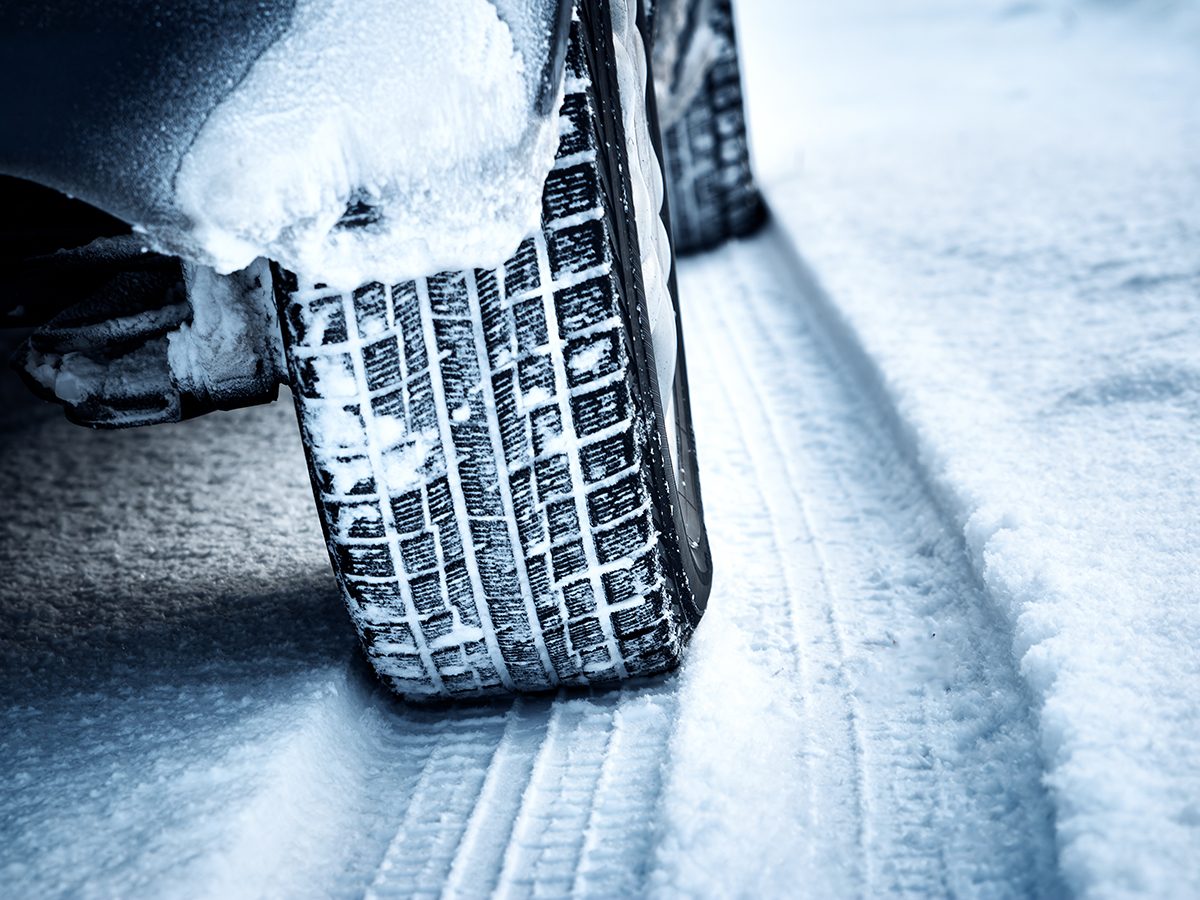
Equip your vehicle with the right tires
While Quebec is currently the only province that requires vehicles to be equipped with winter tires, they’re a good investment across the country, especially if you’ll be driving long distances and through various types of terrain. Road conditions vary from climate to climate, and just because you don’t require winter tires at home doesn’t mean you won’t need them en route to your destination. The Tire and Rubber Association of Canada (TRAC) claims that modern winter tires can offer over 50 per cent more traction than all-season tires in the winter, and that they can improve surface grip in every type of road condition at temperatures below seven degrees Celsius. This, combined with an insurance premium reduction and peace-of-mind should convince most drivers that winter tires are well worth the investment.
Find out the right time to switch to winter tires, according to experts.
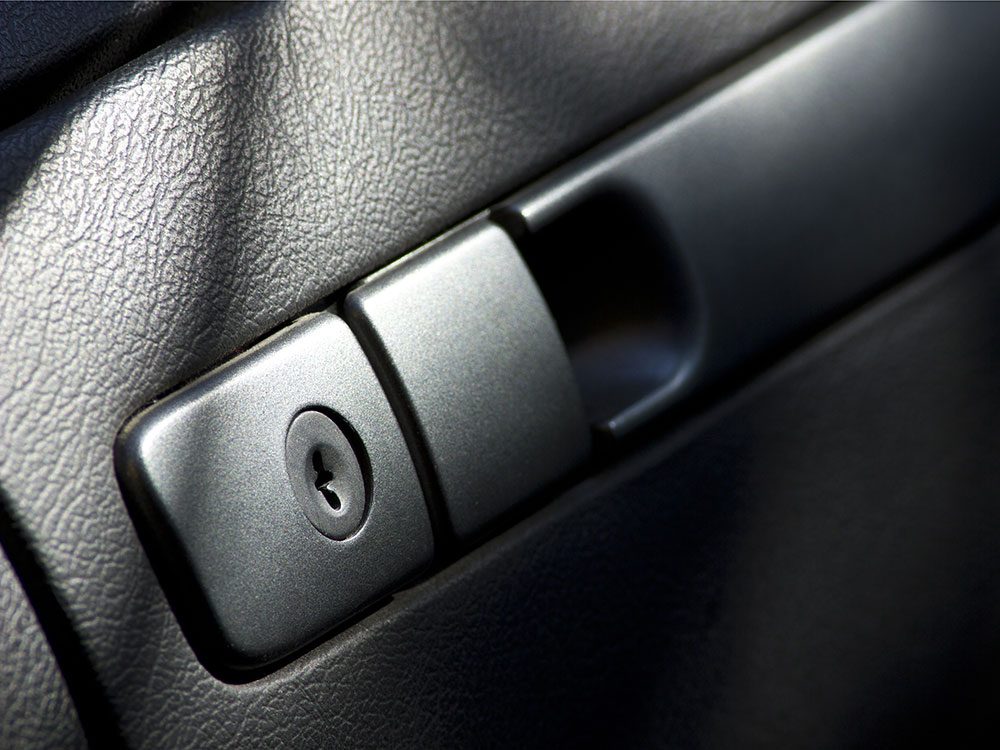
Carry valid proof of vehicle registration and insurance
Insurance providers in Canada consistently register a 49 per cent increase in claims in December and January as compared to other months. That said, even the most seasoned drivers are more likely to get into an accident in winter months. This is why it’s important to always have a valid proof of insurance and registration for the vehicle that you are driving to avoid hassle and any potential legal ramifications.
Here are more things you should always keep in your glove box.
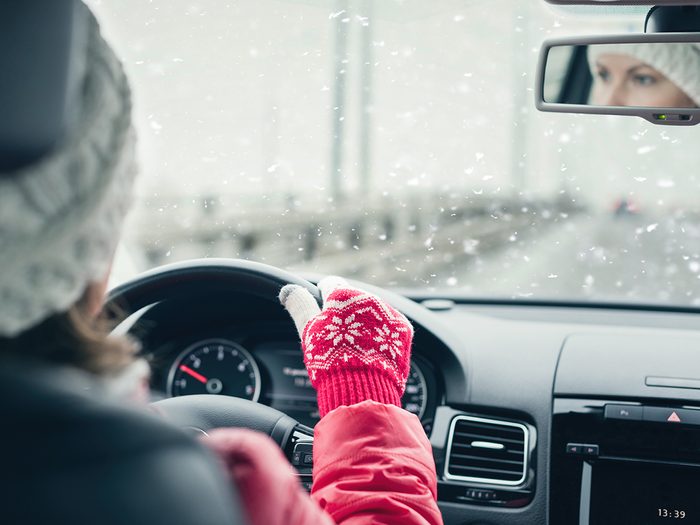
Optimize your visibility
Before setting off on your winter road trip, be sure to top up with winter washer fluid (yes, there are different types of washer fluid for different seasons). Winter fluid has a lower freezing point than summer fluid and will be able to clean your windscreen in even the coldest of temperatures. It’s essential to have a sufficient amount of windshield fluid prior to departure as you’ll constantly be battling spray from other vehicles, which puts a higher demand on your car’s washer fluid than usual. In addition to winter washer fluid, be sure to have winter wiper blades. These differ from summer blades, as they’re designed to clear ice, and substantially improve visibility.
You might also consider these headlight upgrades to further improve visibility.
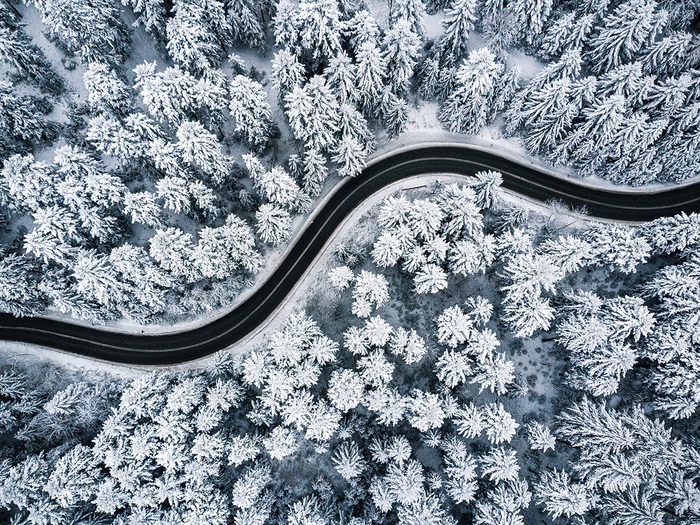
Plan your route in advance
Checking for road closures and potentially challenging driving conditions prior to departure can be a great way to reduce risk—and travel time. Check the weather in both the place of departure as well as the destination. There are also a number of smartphone apps that will warn you of any road closures, including Waze, which uses P2P data.
Now that you know the winter road trip essentials, brush up on the winter driving mistakes that could put you in danger.